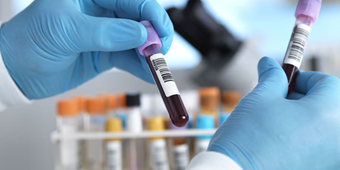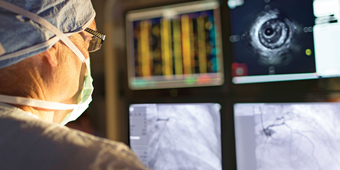Do You Have Fibromuscular Disease?

Find Your Perfect Match
Answer a few questions and we'll provide you with a list of primary care providers that best fit your needs.
Fibromuscular disease (FMD) is definitely one of those bad news-good news medical conditions. The bad news is that FMD is a life-long condition. The good news is that FMD rarely causes symptoms severe enough to treat.
FMD, also known as dysplasia, is a narrowing of arteries throughout your body, most frequently the arteries to the kidneys (renal arteries) and brain (carotid arteries). In rare cases, FMD can affect leg or intestinal arteries. As a result, areas of narrowing (called stenosis) may occur, along with aneurysm or tears of the arteries. If any of these processes occur, you may feel the symptoms of FMD.
Keep in mind that FMD is not atherosclerosis or clogging of the arteries, which is a more common cause of artery narrowing.
No one knows why FMD occurs, but the best guess is that hormonal or genetic factors are involved since FMD most commonly affects young women of European descent.
FMD is usually diagnosed with a test that shows images of the arteries, such as an ultrasound, a CT scan, an MRI, or an angiogram.
Symptoms of FMD
Many women with FMD don’t have any symptoms, and FMD is only diagnosed by accident during a radiology scan for another problem. But sometimes these symptoms do occur:
- High blood pressure. If you have FMD that involves your kidney arteries, you’re likely to have high blood pressure.
- Headaches, neck pain, dizziness, or a “whooshing” sound. If you have FMD that involves your brain arteries, you may experience headaches, some neck pain, dizziness, or a whooshing sound in your ears.
- Stroke symptoms. In rare cases, a person with FMD may experience stroke symptoms.
- Pain while walking or eating. Rarely, FMD affecting leg arteries may cause pain while walking. FMD-affected intestinal arteries can cause pain with eating.
The good news is that FMD rarely causes symptoms severe enough to treat.
Treatments for FMD

If symptoms are causing you discomfort, your doctor might recommend one of the following treatments:
- Taking an aspirin daily helps counteract artery narrowing.
- For FMD in arteries in the kidneys, the resulting high blood pressure can be treated with medications.
- Sometimes balloon angioplasty is used to open arrowed arteries in the kidneys or brain.
- Rarely, surgery is needed to repair the arteries.
Find Your Perfect Match
Answer a few questions and we'll provide you with a list of primary care providers that best fit your needs.
Source: Society for Vascular Surgery; Vascular Cures; Fibromuscular Dysplasia Society of America




